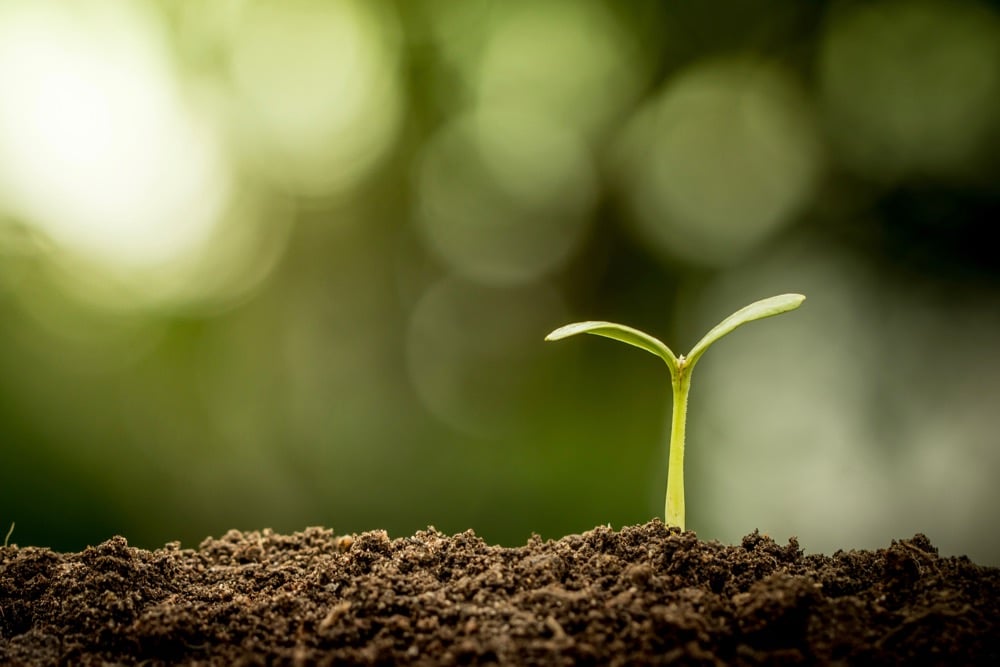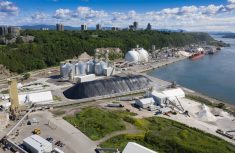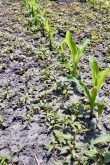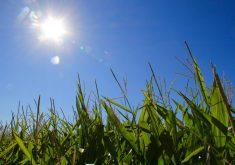Glacier FarmMedia – Ukraine, a country known for wheat and sunflowers, grows a surprising amount of corn.
United States Department of Agriculture data shows Ukraine planted 13 million acres of corn in 2020. Canada had 4.5 million acres of corn in 2020, if silage corn is included.
For the seed industry, 13 million acres is hard to ignore.
Read Also

Ontario’s agri-food sector sets sights on future with Agri-Food 2050 initiative
The first-ever Agri Food 2050, a one-day industry event dedicated to envisioning the future of food and farming in Ontario,…
Big players like Corteva and Bayer are in the Ukrainian corn seed market, but so is a small firm from Guelph, Ont.
North American Plant Genetics (NAPG) acquires corn seed developed by Canadian and American plant breeders and then sells it to Ukrainian farmers.
Why it matters: NAPG is an example of how a small and nimble agriculture company can have an impact in another part of the world.
“All of the big players that we have in Canada are also operating in Ukraine,” said Claire Cowan, NAPG chief executive officer.
“And very similar to Canada, they dominate the (seed and chemistry) market there.”
The global companies may control the lion’s share of the market, but Cowan and her father, John, saw an opportunity for an independent seed company in Ukraine.
John, the former president of Hyland Seeds and former president of the Canadian Seed Trade Association, had business connections in Eastern Europe, through his work at Hyland Seeds.
“He had some friends there who reached out to him… to find a new way to trial some genetics in Ukraine,” Claire said.
At the time, in the mid 2010s, Claire was working in marketing at a multinational company.
But starting a seed business was intriguing.
“Unlike Canada, where we have a lot of independent seed companies… Ukraine doesn’t have as many of (those),” she said.
“We saw an opportunity to (use) some of the amazing genetics in Canada and the U.S., that those big players aren’t (using).”
She suggested to her dad that they become business partners.
In 2016 they formed NAPG.

Starting a business from scratch, on the other side of the world, is not a simple task. But the Cowans found a reliable partner in LNZ Group — a seed and crop input company in Ukraine.
“You need to have somebody you trust with boots on the ground,” Claire said. “(Someone) who knows the customers and is familiar with the environment.”
LNZ Group is also a major producer of crops, operating a 200,000 acre farm in Ukraine.
“LNZ AGRO…owns the biggest areas of corn and sunflower growing in Ukraine,” its website states.
A 200,000 acre farm is unheard of in Canada, but Ukraine’s ag sector is an industry of extremes.
Many Ukrainian producers only farm a few acres, but the massive operators have hundreds of thousands of acres.
“When you get to the top, Ukraine has some of the biggest farms in the world,” Claire said. “I think the two largest farms in Europe are in Ukraine.”
Having a Canadian partner is also beneficial for LNZ Group.
Ukrainian farmers value the agricultural knowledge of North Americans, so the Cowans’ expertise in corn seed and production is valuable.
“Under the Soviet era… the way they did things… was quite different,” Claire said, diplomatically. “They’re always really interested in international experts.”
The massive farms in Ukraine likely use more technology than small-scale growers, but both groups have room for improvement.
“It’s not necessarily like the large farms are high yielders and the small farms are not,” said Claire. “There are certainly farms in Ukraine that could compete with (Ontario) corn yields. (But) for the most part they (have) lower (yields).”
In 2019, NAPG and the LNZ Group launched their seed brand in Ukraine — Universeed.
The company sells corn hybrids, but not genetically modified corn. That’s because Ukraine is tightly connected to the European market, where GM crops are prohibited.
The Cowans get their corn genetics from plant breeders in Canada and the U.S., including independent breeders and scientists, who work at universities and institutions.
“A lot of the independent breeders… they’re focused on their business in Canada and the U.S., so they wouldn’t be pursuing business in Ukraine,” Claire said.
“What’s been exciting… is giving Canadian breeders and Canadian seed companies access to a new market…. That comes with royalties that flow back into their breeding programs.”
Besides corn, NAPG is also developing a line of soybean genetics for Ukraine and hopes to get into the sorghum market.
Over the next five years or so, they hope to build the Universeed brand and solidify a portfolio of corn hybrids for Ukraine.
COVID-19 has disrupted those plans because the Cowans didn’t travel to Ukraine last year to evaluate their corn and soybean plots.
“The big challenge… is we haven’t been able to go over there,” Claire said. “Typically, (we) would go over a few times per year.”
But they do have a reliable partner in Ukraine, and online meetings were a normal part of doing business at NAPG even before the pandemic.
“We were in a better position than some companies, who were used to a face-to-face workstyle,” Claire said. “We were pretty well set up, from the start.”
This article was originally published at The Western Producer.















